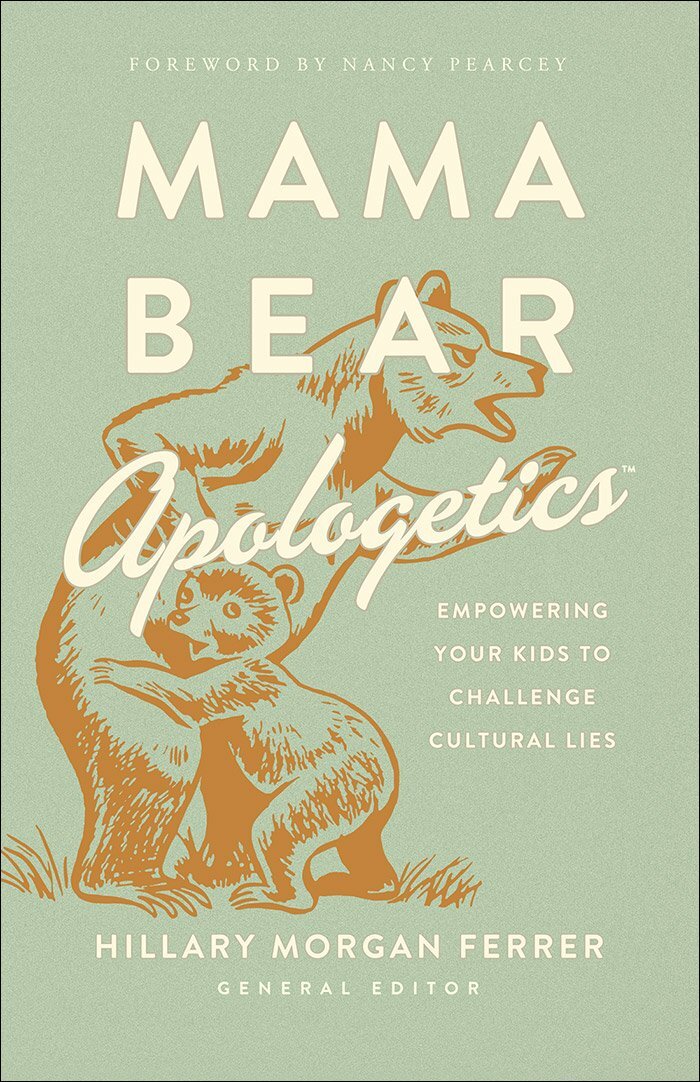Mama Bear Apologetics edited by Hillary Morgan Ferrer
Have you ever bought a new car and then suddenly you start seeing that model of car everywhere? Just when lockdown started my husband had to drive up to Sydney to pick up our new-for-us car. We classified it as ‘essential shopping’ as otherwise I wasn’t sure how we were going to get around when our new bubba arrived! As soon as we got it, like magic, I started seeing that model everywhere we went.
That’s what’s been happening to me since reading these chapters in Mama Bear Apologetics. In this section, a variety of authors pick a ‘cultural lie’, unwrap it and evaluate it in light of the gospel. First up is ‘self-helpism’, i.e. a form of humanism whereby we are both the source and remedy of our own problems. The author of this section, Teasi Cannon, helpfully scoots through a brief history of this philosophy (in America) and then teases it apart a bit in light of the gospel. This chapter is super-accessible and is written with fun bounces of humour along the way.
One thing that struck me was the prevalence of a sense of deservedness, or entitlement in self-help thinking. It’s so so easy to slip into this mentality. “I deserve....a particular relationship, a better lifestyle, good health...” and so I’m going to get them. As Cannon notes, these may well be good things! But there has been a subtle but significant slip from seeing them as gifts from God to rights we earn. As she explains ‘God doesn’t help those who help themselves; He helps those who are helpless and know it’ (p92). Our sin and rebellion is a bigger problem than we realise. It’s going to take an external solution to fix it, and a powerful one at that - God himself, through Christ’s work on the cross. Cannon does well to explain our responsibility to not just sit back and wait for God to magically change us, while being clear on what kind of change we really need (to become more like Christ) and where it is sourced (God, by his Spirit).
This chapter is philosophical but very practical. I was challenged by her encouragement to combat ‘self-helpism’ in my kids by saying ‘Let’s see what the Bible says about it’ when a problem comes up.
While of course more could be said about ‘self-helpism’ and humanism, this was a super-easy, entertaining read with some very graspable take-homes, complete with application steps and discussion questions. My only other thought is that perhaps to make it even more graspable it could be good to not just reference scripture but quote the verses more fully to save you looking them up when you may only have one hand available.
Once you start listening out for self-helpism, you will hear it everywhere. But how good is it that there is an even better story out there to listen to, with a much better ending. It speaks of not just a failing self-fixing version of me, but a saviour bringing in a new and forever-fixed world:
‘Then I saw “a new heaven and a new earth,” for the first heaven and the first earth had passed away, and there was no longer any sea. I saw the Holy City, the new Jerusalem, coming down out of heaven from God, prepared as a bride beautifully dressed for her husband. And I heard a loud voice from the throne saying, “Look! God’s dwelling place is now among the people, and he will dwell with them. They will be his people, and God himself will be with them and be their God. ‘He will wipe every tear from their eyes. There will be no more death or mourning or crying or pain, for the old order of things has passed away. “
He who was seated on the throne said, “I am making everything new!” Then he said, “Write this down, for these words are trustworthy and true.”(Revelation 21:1-5)
Meet Annabel Nixey
Annabel was born and bred in Sydney, but now lives in Canberra. Her husband Simon is a minster at Crossroads Church. Annabel is a regular speaker at EQUIP women and conferences around Australia, and an occasional blogger at our EQUIP Book Club and the Australian Church Record.


